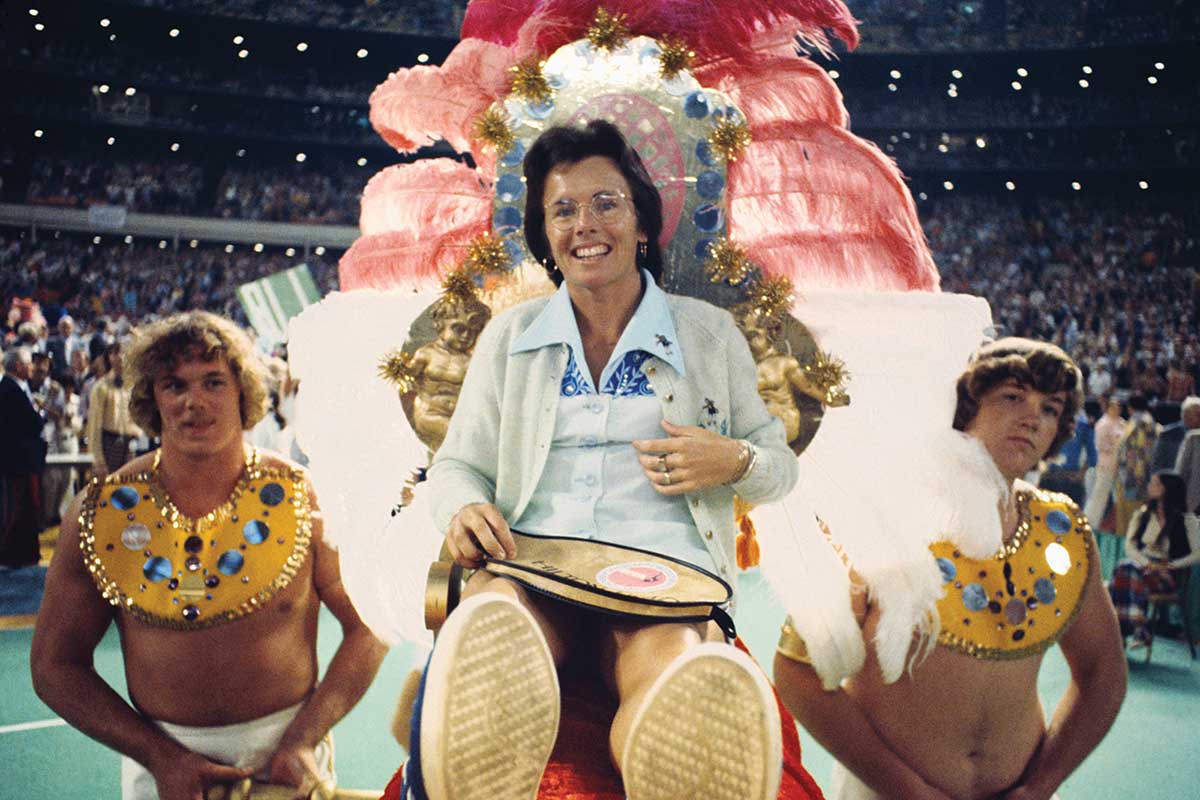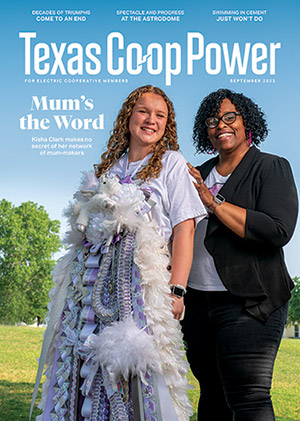You have to peel back an almost insufferable layer of hype—garishness, really—to reach the essence of Billie Jean King’s victory in the so-called Battle of the Sexes 50 years ago this month in Houston. In truth, you have to peel back the calendar by 12 months—to King’s bold shot across the bow, when she decried the disparity in prize money between men and women.
First the hype. Bobby Riggs, a tennis star in the 1940s who later became a shameless promoter, declared no woman could beat him. Not even King, who by the summer of 1973 had already won 31 of her 39 career grand slam titles. King, 29, accepted the challenge, even agreeing to play by men’s rules—best of five sets, as opposed to women’s best of three.
So on September 20, 1973, four shirtless members of the Rice University men’s track team carried King on a litter, à la Cleopatra, onto a tennis court set up inside the 8-year-old Astrodome. Riggs, a self-proclaimed chauvinist wearing a warmup jacket that said Sugar Daddy, entered in a rickshaw pulled by models.
King, as if to state the obvious, presented Riggs with a gift of a baby pig.
When the bluster subsided, the 30,472 in attendance, joined by some 90 million TV viewers worldwide—a tennis record that still stands—settled in for a sports contest.
Except it was no contest.
King dominated Riggs, 55 years old and out of shape. When she won the first set, the women in the Astrodome gave her a standing ovation. In short order, she won the next two sets. After the final point, King tossed her racket into the air, and Riggs hopped the net and whispered into her ear, “I underestimated you.”
That was hardly news to King.
It took an act of Congress to start leveling the playing field for women. Title IX, signed into law in June 1972, heralded a promise of more opportunities for women in sports.
And yet, in September 1972, after King captured the U.S. Open title, she denounced her most unequal prize money in a press conference. She won $10,000, while the men’s champion, Ilie Năstase, got $25,000.
“This was ridiculous, so I said, ‘I don’t think the women are going to be back next year. We’re not going to be back in 1973 unless we get equal prize money,’ ” King recalled years later.
Her firm stand paid off. A year later, just weeks before the Battle of the Sexes at the Astrodome, the U.S. Open started paying women the same as men.
In the 50 years since shutting down—and shutting up—Riggs, King has become a leading advocate for women and LGBTQ+ people. She became the first female athlete awarded the Presidential Medal of Freedom, in 2009.
Through a 2023 lens, the spectacle at the Astrodome might seem more tiresome than outrageous. To King, being at the forefront of a social uprising in 1972 and 1973 was simply tiring.
“It was a huge year, a pivotal year for tennis and for women in general,” King told USA Today columnist Christine Brennan. “I just remember being exhausted all the time. As I’ve said before, when I sleep in now, I’m still catching up from the 1970s.”



